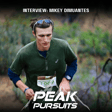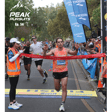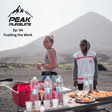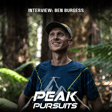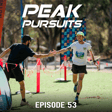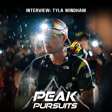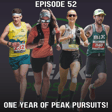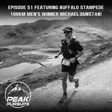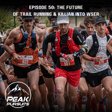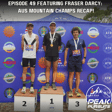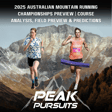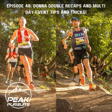
How Does Patricia McKibbin Balance Work, Family, and the Drive to Compete?
In this episode of the Peak Pursuits Podcast, James sits down with Patricia McKibbin—trail runner, physiotherapist, and all-around powerhouse.
If you’ve followed the Australian trail scene, you already know Patricia has put down some seriously impressive performances, including a standout run at the Asia Pacific Championships. But what makes her story even more inspiring is how she balances elite-level training with her work as a pediatric physiotherapist, being a mum, and tackling the unpredictable challenges that come with both.
In this episode, we’ll dive into her journey—her breakthrough races, the battles she’s faced with nutrition and gut issues, and how she manages to keep pushing forward despite all the curveballs life throws her way. Plus, we’ll chat about what drives her to keep competing at such a high level while juggling so many roles.
If you’re a runner looking for insight into the highs and lows of competitive racing, or just someone who loves hearing inspiring stories of resilience, this episode is for you.
***Don’t forget, use code PPP at Bix’s website for 20% off Bix products, exclusive to PPP listeners!***
Thanks for tuning in to Peak Pursuits! Connect with us on Instagram @peakpursuits.pod to share your thoughts, questions, and trail stories. Until next time, keep hitting the trails and chasing those peak pursuits!
Follow Patricia: Instagram
Follow James: Instagram | Strava
Music from #Uppbeat (free for Creators!):https://uppbeat.io/t/mood-maze/trendsetter
License code: K08PMQ3RATCE215R
